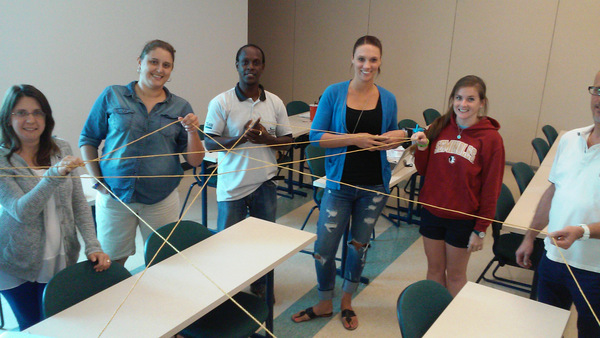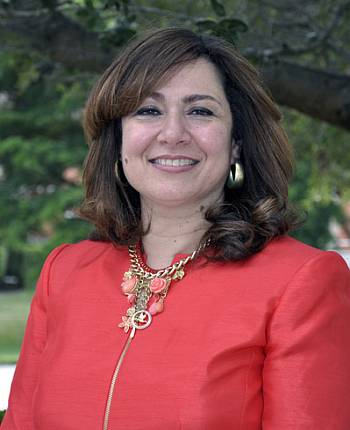Dr. Maysaa Barakat
- Professor, Educational Leadership
- Coordinator, FAU Egypt Partnership
- Past President, Florida Association of Professors of Educational Leadership (fapelflorida.org)
- Associate Director for International Initiatives, University Council for Educational Administration (UCEA)
Values
My professional values align with the stated core values of the Educational Leadership and Research Methodology department: Academic and professional excellence, commitment to social justice and inclusion, community engagement and international mindedness.
Teaching Philosophy

Education is a social process; education is growth; education is a process of living and not a preparation for future living (John Dewey, 1897). I am convinced that education is a social enterprise, which happens through reflection, collaboration, dialogue and exploration of ideas and concepts. I view myself as a facilitator and motivator for learning, and a lifelong learner myself. The learning of my students is at the heart of all my efforts and the ultimate objective of my instructional strategies. A teacher must be innovative, creative and has to integrate multiple instructional strategies and technology to accommodate the learning needs of each individual student. A teacher must ensure that he/she creates a positive non-threatening learning environment where every voice is heard and everyone is valuable.
The gap between theory and practice or the schism between researchers and practitioners has been a problem for the professoriate. I see teaching and research as two faces of the same coin; research informs my instruction which in turn drives research and so on, in an ongoing spiral of learning. I never lose sight of what is important; student learning is at the heart of educational leadership mission. Since faculty of educational leadership programs carry the great responsibility of preparing school leaders, we must ensure that our students not only gain the knowledge necessary, but that they also acquire the necessary skills of reflection, critical thinking, problem solving and that they develop an ethical compass to guide them in their quest to support and advocate for every individual student’s right to learn. The majority of graduate students in educational leadership programs are full- time professional educators. Pursuing further educational leadership degrees present an opportunity for graduate students to integrate their personal, professional and scholarly selves. Therefor their graduate work should present them with the opportunity to apply new learning (Mezirow, 2000) to their school-based practice. In all of my courses I will strive to model the application of theory to practice and to engage students in inquiry and reflection with the hope that they can apply relevant theories to respective professional situations.
I end with this quote: "Leadership is second only to classroom instruction among all school-related factors that contribute to what students learn at school" (Leithwood, Seashore-Louis, Anderson & Wahlstrom, 2004, p. 70). This adds a sense of urgency to the importance of developing effective school leaders for the current challenging and rapidly changing world (Friedman 2008).
